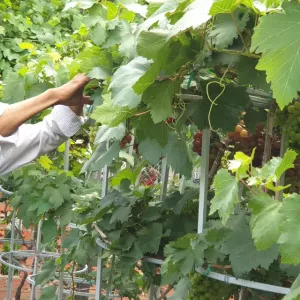Spelling out ACBs: Synergy of Scientific and Local Climate Knowledge in Agro-Climatic Bulletins in Vietnam
Vietnam’s climate conditions have greatly affected the vulnerability of its local agriculture. In 2020, the region lost US$ 10 billion as a result of the impacts of climate change. Additionally, in 2022, 874 hectares of rice and 4,445 hectares of other crops in many areas of Vietnam were flooded due to Typhoon Noru. A recent study estimated that with a

Spelling out ACBs: Synergy of Scientific and Local Climate Knowledge in Agro-Climatic Bulletins in Vietnam
Vietnam’s climate conditions have greatly affected the vulnerability of its local agriculture. In 2020, the region lost US$ 10 billion as a result of the impacts of climate change. Additionally, in 2022, 874 hectares of rice and 4,445 hectares of other crops in many areas of Vietnam were flooded due to Typhoon Noru.
A recent study estimated that with a one-degree increase in temperature, yields of rice – the main crop of the Red River Delta, the Mekong River Delta, and most of Vietnam’s agro-ecological regions – could decrease by 7.09 percent. The World Bank Group also emphasized that increasing threats of drought and saltwater intrusion bring about greater challenges in the production of various other crops in the country such as coffee and fruit trees.
Vietnam is projected to suffer agricultural losses of 5.6 percent due to a changing climate by 2030. As part of efforts to combat the effects of climate change, there is a need to find sustainable solutions to address the current food system challenges in the region.
In bringing together scientific and local knowledge in Vietnam, the Alliance of Bioversity International and CIAT and the Department of Crop Production (DCP) of the Ministry of Agriculture and Rural Development (MARD) have implemented participatory approaches in the development and dissemination of agro-climatic bulletins (ACBs) to reduce climate risks. Through these approaches, smallholders and technical working groups can make better crop decisions aligned with climate adaptation and mitigation strategies.
ACBs are climate information services that reflect the local farmers’ needs in the region. The bulletins are disseminated through multiple channels including loudspeakers, meetings, and online messaging groups. These services aim to provide farmers with recommendations on when to plant crops, which varieties, how to manage soil and water resources, and how to prevent pest and disease outbreaks, all of which can be affected by weather and climate conditions. This initiative helped farmers improve their crop decisions, resulting in more efficient crop farming.
Farmers in Vietnam who used ACBs supported by the Alliance and MARD-DCP have seen an average increase of 266 kg/ha in rice yield, based on correlation assessment. In addition, 40% of interviewed farmers reported a reduction in pesticide costs of over 1.3 million VND (USD $55) per hectare. This participatory approach supports vulnerable farmers to plan crop choices based on weather management strategies.
A farmer from Tan Phuoc district in the Tien Giang province affirms: “I used to spray pesticides without much consideration of the expected weather conditions. The pesticides would be washed away when it rained, costing me around 500-600 thousand VND (USD $21-25) for each application.”
As part of efforts to upscale the implementation of ACBs, the establishment of technical working groups at the provincial and district level – involving hydrometeorological professionals, agricultural officers, water management advisors, as well as farmers – creates opportunities to bring together expert and local knowledge to address the region’s food system challenges. Through the Alliance’s collaboration with the DCP, ACB initiatives are expected to expand to other regions of Vietnam through its incorporation into government policies.

